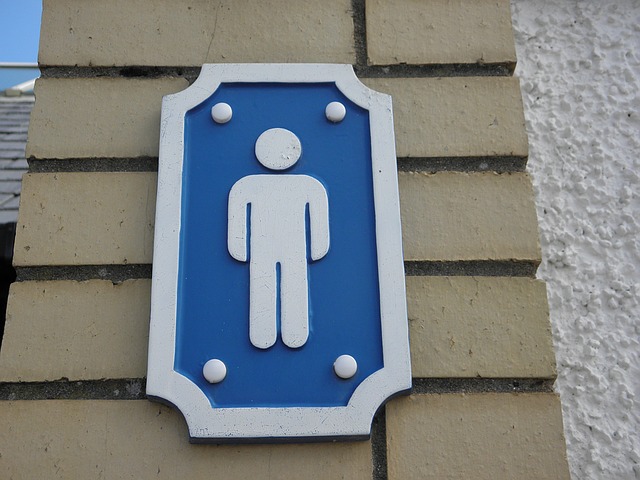Únik moči u mužů, aneb inkontinence není jen ženské téma
I u mužů?
To se přeci týká pouze žen, ne? S tímto názorem se setkávám relativně často, bohužel je však na hony vzdálen pravdě. Únik moči se může týkat i mužské populace a to nejčastěji po operaci zvětšené prostaty (benigní hyperplazie prostaty) nebo nádorového onemocnění v dané lokalitě. Bezprostředně po této operaci postihuje větší či menší únik moči až 60 % mužů, problém se postupně s časem spontánně upravuje. Přesto inkontinencí moči trpí i několik měsíců po operaci 10-30 % mužů. Většími problémy obvykle trpívají muži, kteří prodělají po operaci následně ještě ozařování, chemoterapii nebo hormonální léčbu.
Úniky se mohou projevovat při zvýšeném nitrobřišním tlaku, například při zvedání břemen, vstávání, kýchnutí či při sportu. Často můžeme pozorovat sníženou kapacitu a vyšší dráždivost močového měchýře ve formě častějšího nutkání a urgence, kterou může následovat též inkontinence.
Dá se inkontinence ovlivnit?
Ano, částečně to možné je. Ke konzervativním (non-operativním) cestám patří behaviorální terapie, fyzioterapie a farmakoterapie.
Behaviorální terapie spočívá v omezení dráždivých jídel a nápojů (káva, kyselé džusy, silný čaj, alkohol), čím se sníží pocit četného nutkání na močení. Někdy je vhodné upravit pitný režim. Ten se u zdravých mužů pohybuje kolem příjmu 35 – 40ml na 1kg váhy jedince za 24-hodin. Má-li například muž kolem 80kg, měl by jeho příjem být 0,04 x 80 = 3,2 l při normální zátěži. Do tohoto příjmu se započítávají nápoje, tekutina z potravin (obvykle kolem 800-1000ml/den) i tekutina vzniklá vlastním metabolismem člověka. V případě nočního nutkání na močení je vhodné omezit příjem cca 1,5h před spaním. Občasně pomáhá rozložit přijatou tekutinu do méně větších dávek během dne.
Fyzioterapií se rozumí vlastní posilování svalů pánevního dna, popřípadě cvičení s přístroji na podkladě biologické zpětné vazby či elektrostimulací svalů. Nejčastějším problémem je naučit se cíleně ovládat vlastní svaly pánevního dna. U slabých svalů lze zároveň využít přístrojů, kdy za pomocí sondy přímo stimulujeme svaly pánevního dna.
Farmakoterapie řeší ponejvíce zvýšenou dráždivost svalu močového měchýře, čímž se snižuje pocit urgencí, zvyšuje se jeho kapacita a zmírňují příhody úniku moči.
Kdy začít s cvičením?
S cílenými cviky na schopnost volního ovládání svalů pánevního dna a jeho posílení je nejlepší začít ještě před samotnou operací.
Se stahováním svěračů a vtahováním (liftem) pánevního dna lze začít též bezprostředně po operaci. Vždy je však třeba respektovat hojení jizev, proto na začátku zkoušíme pouze 2-3 stahy několikrát denně malou silou. S postupujícím hojením můžeme počet stisků a posilování zintenzivnit.
Pánevní dno aktivujeme vždy před zvednutím břemen, kašlem, průběžně při sportu či při nutkání na močení.
Je vždy potřeba navštívit fyzioterapeuta?
Teoreticky vzato u tohoto cvičení není třeba speciální fyzioterapeutická péče. Mnoho mužů však málo vnímá, které svaly posilovat, a nahrazuje je stahem hýždí či stehen. A právě v případě špatného vnímání svého těla či u reálné slabosti je vhodné vyhledat specializovaného fyzioterapeuta. Ten poradí s cvičením, uvolní pooperační jizvy a popřípadě doporučí vhodnou přístrojovou léčbu (přístroje na podkladě biologické zpětné vazby, elektrostimulace, křesla s magnetickou indukcí).
Terapie lze zahájit více méně ihned po operačním zákroku, ale obvykle je účinnější počkat do základního zhojení měkkých tkání (3-6 týdnů po operaci).
Rehabilitace Be Balanced nabízí diagnostiku a individuální terapii poruch pánevního dna.

